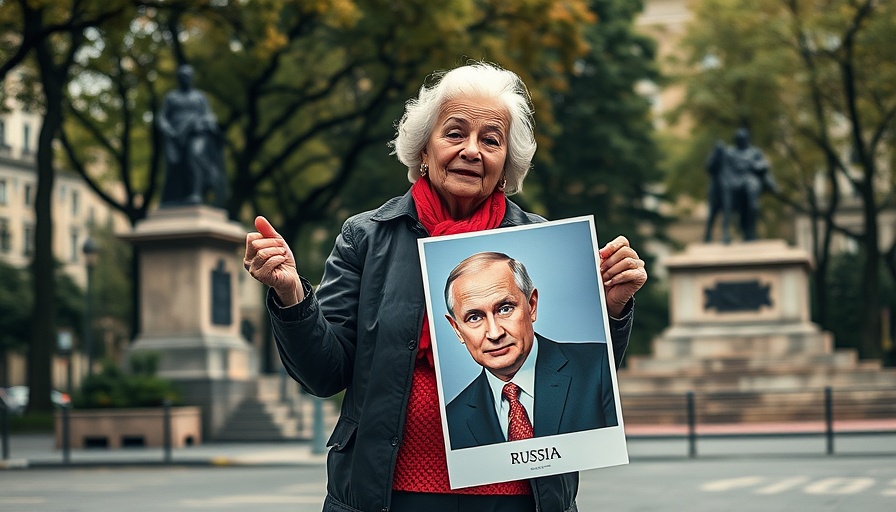
The Shocking Proposal: A Ukrainian Perspective on Crimea
On April 27, 2025, a peace proposal presented by the Trump administration sent shockwaves through Ukraine, particularly regarding the contentious status of Crimea. The proposal appears to suggest the recognition of Russian authority over the long-disputed peninsula, an idea that many in Ukraine find unfathomable. Following Russia's illegal annexation in 2014, the sentiments surrounding Crimea remain deeply entrenched in the national psyche.
A Constitutional Conundrum
Legal experts in Ukraine underscore the magnitude of giving up Crimea; it isn't just a matter of political negotiation but one that strikes at the heart of Ukrainian sovereignty. To officially recognize Crimea as Russian would require significant constitutional amendments and likely nationality-voting processes, which many argue could be tantamount to treason. Lawmakers, including Oleksandr Merezkho of President Volodymyr Zelenskyy's party, affirm a firm stance against any formal acceptance of Crimea as part of Russia: "We will never recognize Crimea as part of Russia," he stated, echoing the sentiments of many Ukrainians who feel that surrendering Crimea would mean losing a core part of their national identity.
Public Sentiment and Regional Dynamics
The conflicting ideas of territorial concession versus formal surrender are not lost on the Ukrainian populace. Many citizens are coming to terms with the notion that land concessions might be necessary for the sake of peace, acknowledging the current geopolitical realities that make a military retake impractical, if not impossible. Recent polls indicate a growing acceptance of potentially trading away Crimea to achieve an armistice, suggesting a complex paradigm shift in public opinion.
Understanding the Emotional Landscape
At the heart of the conflict is a profoundly emotional landscape—the desire for national pride and the quest for peace. Historical context bears significant weight; Crimea has not only strategic importance but also symbolizes a part of Ukraine’s cultural and historical identity. The idea of ‘ceding’ land brings forth emotions of defeat and betrayal, an uncanny reminder of the painful history that has shaped Ukraine's contemporary struggles.
Comparative International Responses
Ukraine's situation is not unique. Similar territorial disputes have arisen worldwide, calling to mind cases like those of Taiwan and Tibet, where sovereignty issues remain thorny and contentious. The international community's response to Ukraine's predicament highlights a troubling tendency to engage in diplomatic talks without fully considering the local sentiment and historical grievances attached to these lands. As countries negotiate peace, understanding the wishes of the people affected is vital in ensuring lasting solutions.
Future Implications for Ukraine and Crimea
Looking ahead, predictions for Ukraine's political climate indicate a continued challenge for the current administration. Should the Trump administration's proposal gain traction, it could either lead to increased support for President Zelenskyy’s government or significant unrest as citizens grapple with the implications of losing Crimea. Politically, a satisfactory resolution that addresses both national pride and practical peacekeeping will be key to stability in the region.
A Call for Unity and Strength
As Ukraine stands at this crossroads, a unified response from the government and its people is imperative. While peace is a universal aspiration, relinquishing sovereignty threatens to unravel the very fabric of a nation’s hard-won independence. Strengthening public dialogue about the future of Crimea could pave the way for a solution that addresses both the acute demands of peace and the enduring heart of national identity.
In conclusion, while the idea of a possible concession over Crimea may be gaining some acceptance, the core belief within Ukraine remains: surrender is not on the table. Understanding and respecting the emotional and historical narratives that accompany such discussions will be paramount in any peace negotiations moving forward.
 Add Row
Add Row  Add
Add 




 Add Row
Add Row  Add
Add 

Write A Comment